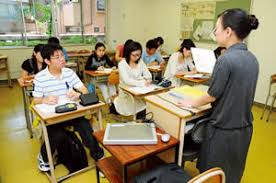Asia/ Japan/ 04.03.2019/ Source: the-japan-news.com.
In preparation for an increase in foreign workers, it is indispensable to improve Japanese language education for them. The building of a relevant framework, such as establishing bases for study and ensuring the quality of instructors, must be accelerated.
The new types of residence status for “designated skills” will be established in April, with up to 340,000 foreign workers expected to be accepted into the country over the next five years.
It is necessary to encourage them to adjust smoothly to local communities and workplaces. While rooting out bureaucratic sectionalism at the ministries and agencies, the central government should take measures to support foreign workers, in cooperation with local governments and companies that will accept them. A situation in which foreigners form their own groups of compatriots and become socially isolated should be avoided.
The acquisition of Japanese language skills is key to their smooth adjustment. To obtain the new status, they need to attain the level of Japanese language necessary for daily living. It is important to enhance their language ability, even after their arrival in Japan, with the cooperation of their workplaces.
There are about 2,100 bases for foreigners living in Japan to learn the Japanese language, such as language schools and classes run by nonprofit organizations and local governments. But they are unevenly located, with many of them in urban areas, while about 60 percent of the local governments of cities, wards, towns and villages in the country have no such facilities.
Concern cannot be dispelled that foreign workers will flow out of rural areas into urban areas where wages are relatively high. Having no places for learning Japanese language may impede their settlement in rural areas.
Ensure quality teaching
To eliminate areas devoid of language-learning facilities, the Education, Culture, Sports, Science and Technology Ministry will assign coordinators to prefectural governments and ordinance-designated major cities, starting in fiscal 2019. They are tasked with crafting educational programs suited to local communities, while giving advice and guidance to local classes of Japanese language. Such endeavors should be promoted steadily.
The utilization of public-run evening junior high schools is also important. Originally, the evening classes were attended mainly by Japanese people who for a variety of reasons had not completed their compulsory education. But now foreigners account for 80 percent of the students.
In expectation of an increase in foreign manpower, the government aims at increasing evening school courses, which are currently available at 31 schools in Tokyo and seven other prefectures, by having them established in all the prefectures. Financial support should be advanced in a carefully planned way.
Ensuring the quality of education should not be forgotten. The Cultural Affairs Agency will establish a qualification for teachers of Japanese language. Requiring teaching practice in the training stage is also being discussed. A challenge will be to secure schools where trainees can engage in practice teaching, and to work out the content of practice teaching programs.
Sound management of Japanese language schools is also important. How should these facilities be urged to improve themselves, where the attendance rate of students is low and the performances of language proficiency tests are poor? A framework to check them effectively is essential.
It is indispensable to take care of children who are unable to fully understand classes given in Japanese. The number of such children has reached a total of 44,000 in elementary, junior high and senior high schools, up 70 percent over the past 10 years.
Many of them are elementary and junior high schools with fewer than five such students, making it difficult to give lessons efficiently. There are cases where a teacher who can offer Japanese language instruction circulates among different schools. There are also local governments that offer language programs intensively for a certain period, by having such students gather in one place.
By referring to these examples, meticulous guidance should be expanded.
Source of the notice: http://the-japan-news.com/news/article/0005582463







 Users Today : 10
Users Today : 10 Total Users : 35460141
Total Users : 35460141 Views Today : 18
Views Today : 18 Total views : 3418801
Total views : 3418801